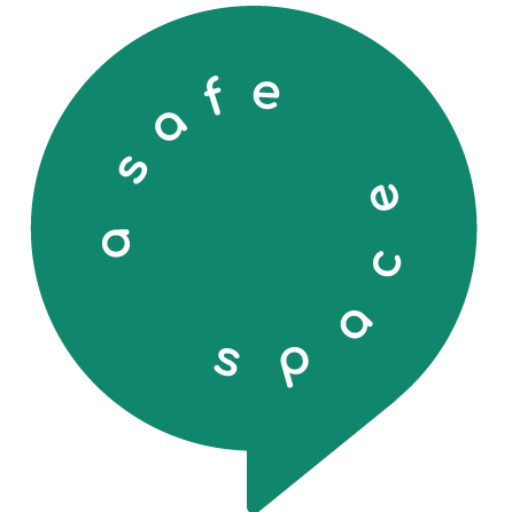Debt is a common aspect of many people’s lives. Whether it’s from student loans, credit cards, or unexpected expenses, personal debt can become overwhelming if not properly managed. In this article, we will explore ten effective ways to pay off personal debt and regain control of your financial health.
Understanding Personal Debt
Before diving into debt repayment strategies, it is crucial to understand the basics of personal debt. Personal debt refers to the money owed by an individual to a lender. This can include credit card debt, personal loans, and lines of credit.
Personal debt is a common financial obligation that many individuals face. It can arise from various sources, such as unexpected expenses, a higher cost of living, or simply overspending. Regardless of the reasons behind it, personal debt can have a significant impact on an individual’s financial well-being.
The Basics of Personal Debt
Personal debt is money borrowed with an agreement to repay it within a specific time frame. It often incurs interest charges, which can make the total amount owed increase over time. Understanding the terms of your debt, including interest rates and repayment schedules, is key to developing a successful repayment plan.
When it comes to personal debt, it is essential to differentiate between good debt and bad debt. Good debt refers to borrowing money for investments that have the potential to increase in value over time, such as a mortgage for a home or a student loan for education. On the other hand, bad debt refers to borrowing money for non-appreciating assets or unnecessary expenses, such as credit card debt used for luxury purchases.
It is important to be mindful of the consequences of accumulating too much personal debt. Excessive debt can lead to financial stress, strained relationships, and even bankruptcy. Therefore, it is crucial to manage personal debt responsibly and develop a plan to pay it off in a timely manner.
Common Causes of Personal Debt
Personal debt can be caused by a variety of factors, with overspending being one of the main culprits. In today’s consumer-driven society, it’s easy to get caught up in the desire for instant gratification and accumulate debt through credit cards and loans.
Another common cause of personal debt is job loss. When individuals lose their source of income, they may struggle to meet their financial obligations and resort to borrowing money to cover their expenses. This can quickly spiral into a cycle of debt if new employment is not secured promptly.
Furthermore, unexpected emergencies such as car repairs, home repairs, or family emergencies can also contribute to personal debt. These unforeseen circumstances often require immediate financial attention, and individuals may resort to borrowing money to address these urgent needs.
It’s important to note that personal debt is not solely caused by irresponsible financial behaviour. Life circumstances and external factors can play a significant role in pushing individuals into debt. Understanding the various causes of personal debt can help individuals develop strategies to manage and eventually eliminate their debt.
10 Effective Ways to Pay Off Personal Debt
-
Budgeting and Expense Tracking
One of the most effective ways to pay off personal debt is by creating a budget and tracking your expenses. Start by analysing your monthly income and expenses to determine how much you can allocate towards debt repayment. Cut back on unnecessary expenses and prioritize debt payments. By sticking to a budget, you’ll have a clear roadmap to becoming debt-free.
-
Debt Consolidation Options
If you have multiple debts with high-interest rates, debt consolidation can be a great option. This involves taking out a single loan to pay off all your existing debts. By consolidating your debts, you can potentially lower your interest rates and simplify your repayment process. However, it’s important to carefully assess the terms and fees associated with debt consolidation before proceeding.
-
Negotiating Lower Interest Rates
Another effective strategy is to negotiate lower interest rates with your creditors. Reach out to your lenders and explain your financial situation. They may be willing to lower your interest rates or provide you with a more manageable repayment plan. Be proactive in initiating these conversations and don’t be afraid to negotiate for better terms.
-
Utilising Balance Transfers
If you have credit card debt, consider utilizing balance transfers to save on interest. Look for credit card offers with low or 0% introductory interest rates and transfer your existing balances to these cards. This can provide you with a temporary reprieve from interest charges, allowing you to focus more on paying off the principal amount.
-
Increasing Your Income
To accelerate your debt repayment, consider finding ways to increase your income. This could include taking on a part-time job, freelancing, or starting a side business. Every extra pound you earn can be put towards paying off your debt, helping you become debt-free faster.
-
Make Extra Payments
Whenever you have extra money, such as a bonus or tax refund, put it towards your debt. Making additional payments can accelerate your debt payoff.
-
Cut Credit Card Usage
Temporarily stop using your credit cards to prevent accumulating more debt. Pay for expenses with cash or debit cards instead.
-
Seeking Professional Debt Advice
If you’re feeling overwhelmed by your debt situation, don’t hesitate to seek professional debt advice. There are various debt counselling and management services available that can provide you with guidance and support. They can help you create a personalized debt repayment plan and negotiate with your creditors on your behalf.
-
The Snowball Method
The debt snowball method involves paying off the smallest debts first while making minimum payments on larger debts. As each debt is paid off, the money previously allocated to that debt is then applied to the next smallest debt. This approach provides a psychological boost as you experience quick wins by eliminating smaller debts.
-
The Avalanche Method
The debt avalanche method, on the other hand, focuses on paying off debts with the highest interest rates first. By targeting high-interest debts, you can save money on interest charges over time. List your debts in descending order based on interest rates and allocate extra funds towards the debt with the highest interest. As you pay off each debt, roll the payments into the next debt on the list.
Maintaining a Debt-Free Lifestyle
Building an Emergency Fund
Once you’ve successfully paid off your personal debt, it’s important to build an emergency fund. This will serve as a financial safety net for unexpected expenses or emergencies, preventing you from going back into debt. Aim to save at least three to six months’ worth of living expenses in your emergency fund.
Regular Financial Reviews
To maintain a debt-free lifestyle, regularly review your financial situation and make necessary adjustments. Keep track of your income, expenses, and savings to ensure you stay on track. Look for areas where you can further reduce expenses or increase your savings. By staying vigilant, you’ll be able to enjoy a financially secure future.
Staying Informed About Financial Trends
Lastly, stay informed about financial trends and developments in the UK. Keep an eye on interest rates, changes in lending regulations, and other factors that may impact your financial situation. By staying informed, you can make informed decisions about your finances and avoid falling back into debt.
In conclusion, paying off personal debt requires a combination of financial discipline, strategic planning, and perseverance. By understanding personal debt, prioritizing your debts, and adopting effective debt repayment strategies, you can take control of your finances and work towards a debt-free future. Remember to maintain a debt-free lifestyle by building an emergency fund, conducting regular financial reviews, and staying informed about financial trends. With determination and the right approach, you can achieve financial freedom and peace of mind.






